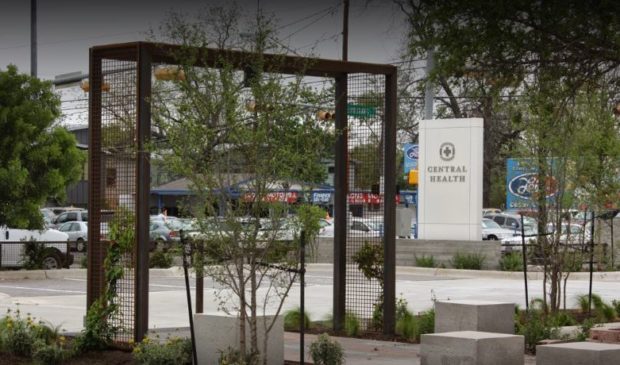County commissioners approve Central Health budget
Thursday, September 26, 2019 by
Jack Craver Shortly after approving the county budget, the Travis County Commissioners Court OK’ed the $291 million fiscal year budget for Central Health, the county’s public hospital district.
Central Health is a public authority funded by local property taxes that is charged with providing health care to low-income people.
The budget increases spending by 12.4 percent over the previous year. It will result in a 6.9 percent increase above the effective tax rate, which is the amount property owners paid in Central Health taxes the previous year.
The average county homeowner with a home worth $347,655 will pay $23.06 more in Central Health taxes than last year.
While a new state law signed by the governor in June will sharply reduce the amount of revenue that most cities, counties and school districts can raise without voter approval, hospital districts such as Central Health will still be allowed to raise taxes 8 percent over the effective rate each year.
Thus, Central Health leaders did not feel nearly as much pressure as city and county leaders did to raise the maximum revenue possible this year. In a statement released Tuesday evening, the agency boasted that it had the lowest tax rate of any hospital district in Texas.
While the great majority of the district’s funding comes from property taxes, it is also generating $14 million a year from leasing land it owns, notably the former University Medical Center Brackenridge property, and $2 million a year from a tobacco settlement fund.
In an attempt to improve care and bolster its financial situation, the district has budgeted another $7 million to continue an effort it began last year to move chronically ill patients from its Medical Access Program – a health coverage plan for low-income people who don’t qualify for Medicaid – to its private insurance plan, Sendero. Last year, 223 people made the switch and Central Health is hoping another 500 will make the move this year.
For each high-risk patient it enrolls, Sendero will get funding from the federal risk-adjustment program created by the Affordable Care Act. That funding will hopefully more than cover what Central Health spends paying for the patients’ monthly premiums.
The budget includes funding for a new clinic in Hornsby Bend and another near Elroy. In both instances Central Health is partnering with an emergency service district to deliver care.
The Commissioners Court spent less than 15 minutes on the budget. There were only a couple of questions from the dais following the presentation by Central Health staff.
Commissioner Gerald Daugherty expressed concern that people from outside of the county were able to access services from Central Health that are intended only for county residents.
Central Health CEO Mike Geeslin responded that while anyone who shows up at a clinic will receive care, they are not eligible for the discounts available to county residents.
However, the budget was not approved unanimously. Commissioner Margaret Gómez abstained, saying she did not want to support the budget until she was assured that the Central Health Board of Managers would approve moving ahead with the clinic near Elroy, which she has long been pushing for.
The other four commissioners voted in favor of the budget.
Photo courtesy of Google Maps.
The Austin Monitor’s work is made possible by donations from the community. Though our reporting covers donors from time to time, we are careful to keep business and editorial efforts separate while maintaining transparency. A complete list of donors is available here, and our code of ethics is explained here.
You're a community leader
And we’re honored you look to us for serious, in-depth news. You know a strong community needs local and dedicated watchdog reporting. We’re here for you and that won’t change. Now will you take the powerful next step and support our nonprofit news organization?






